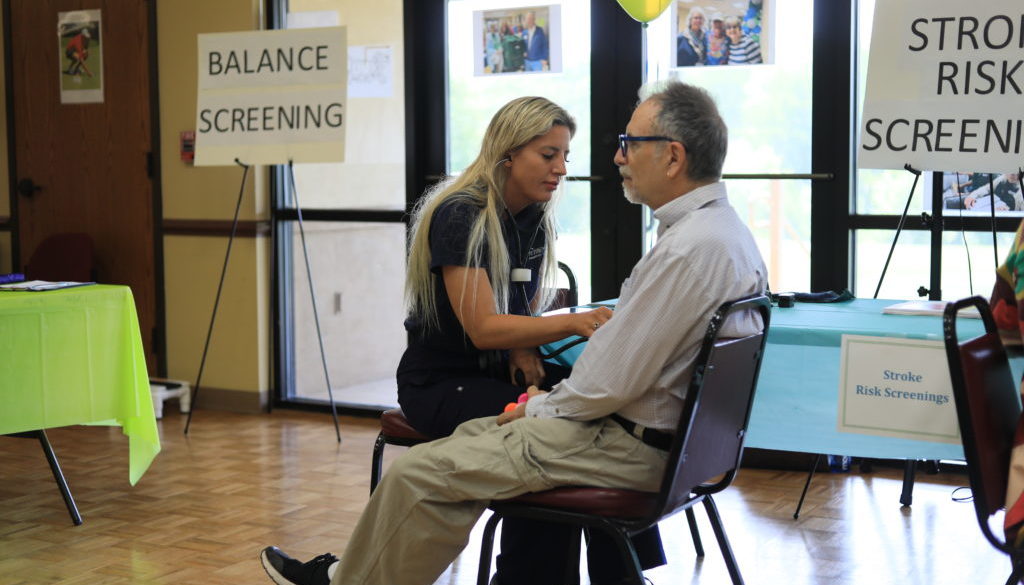Peterson Health and the Dietert Center have teamed up again to bring a variety of resources and screenings to the public regarding stroke risk, prevention and the resources available throughout the community.
Coordinating this year’s event was Inpatient Lead Therapist at Peterson Health, Sam Blieden.
“Kerrville and the Hill Country is an older community. The older you get, the higher your risk is for stroke. So the main focus of the fair is risk screenings and balance screenings, since falls are a big problem in our community too,” said Blieden.
Peterson and the Dietert Center have partnered many times in the past, both institutions providing immense support to community members that have experienced stroke.
“Depending on where someone is in their journey, we have different services and resources to meet them where they are,” said Paige Sumner, Director of Philanthropy at the Dietert Center. “We also have the community resource side, for people who call us and say, ‘Okay, my dad had a stroke. I don’t know what to do.’ Then we talk about medical equipment lending–Do they need a wheelchair? Do they need a walker? Could we introduce some chair yoga therapy?”
The Dietert Center often acts as a stepping stone for resources involving senior care in the Hill Country. At the stroke prevention fair, the Dietert hosted the event as well as included information on various community resources at their booth.
“We connect people with the resources that can help them. When we say Dietert is supporting healthy aging, we’re really just a comprehensive community center that meets you where you’re at. And if we can’t provide the service, we’ll find someone in the community who can,” said Sumner.
Those attending the fair could get their vitals taken at the stroke risk screening then head over to the balance screening to test their motor skills.
“Following a stroke, since we are dealing with more of a neurological injury, we can have multiple things. Whether it’s a vestibular issue, low-vision issues, or anything like that can affect balance and increase your risk of falls,” said Occupational Therapist James Aleman.
With an array of balance tools available for screening, Aleman and Physical Therapist Clayton Garcia tested attendees’ balance based on their specific concerns.
“Often with a stroke, there’s different severities, so we could test them to see where they’re at. Then continue to test later to see how well they’ve progressed. Sometimes they regain movement quickly, for others it could be a little bit delayed. It kind of depends where the stroke affected the body,” said Garcia.
Focusing on stroke prevention through proactive lifestyle choices, Peterson Dietician Conni Litze provided attendees with important nutritional advice.
“Typically with strokes, we are definitely wanting to watch our sodium content as well as the types of fats we’re consuming. Sodium is found in absolutely everything. It’s a preservative and a flavor additive,” said Litze.
As for the types of fats consumed, rather than cutting out entirely, Litze recommended eating healthy sources of fats.
“We like to reduce our trans fats and limit saturated fats–which are typically found in meat and dairy items. We like to incorporate more good heart healthy fat: omega threes and sixes, poly and monounsaturated fats–those are going to be found in fatty fish and plant seed oils,” said Litze.
Scheduled during the Dietert’s Friendship Cafe’s lunchtime, the event saw many guests explore the resources available to them and their loved ones, as well as get access to screenings from professionals during their lunch break.
For more information about Peterson Health’s Stroke Prevention Fair, visit their website at: https://www.petersonhealth.com/event/community-stroke-prevention-and-awareness-fair.
